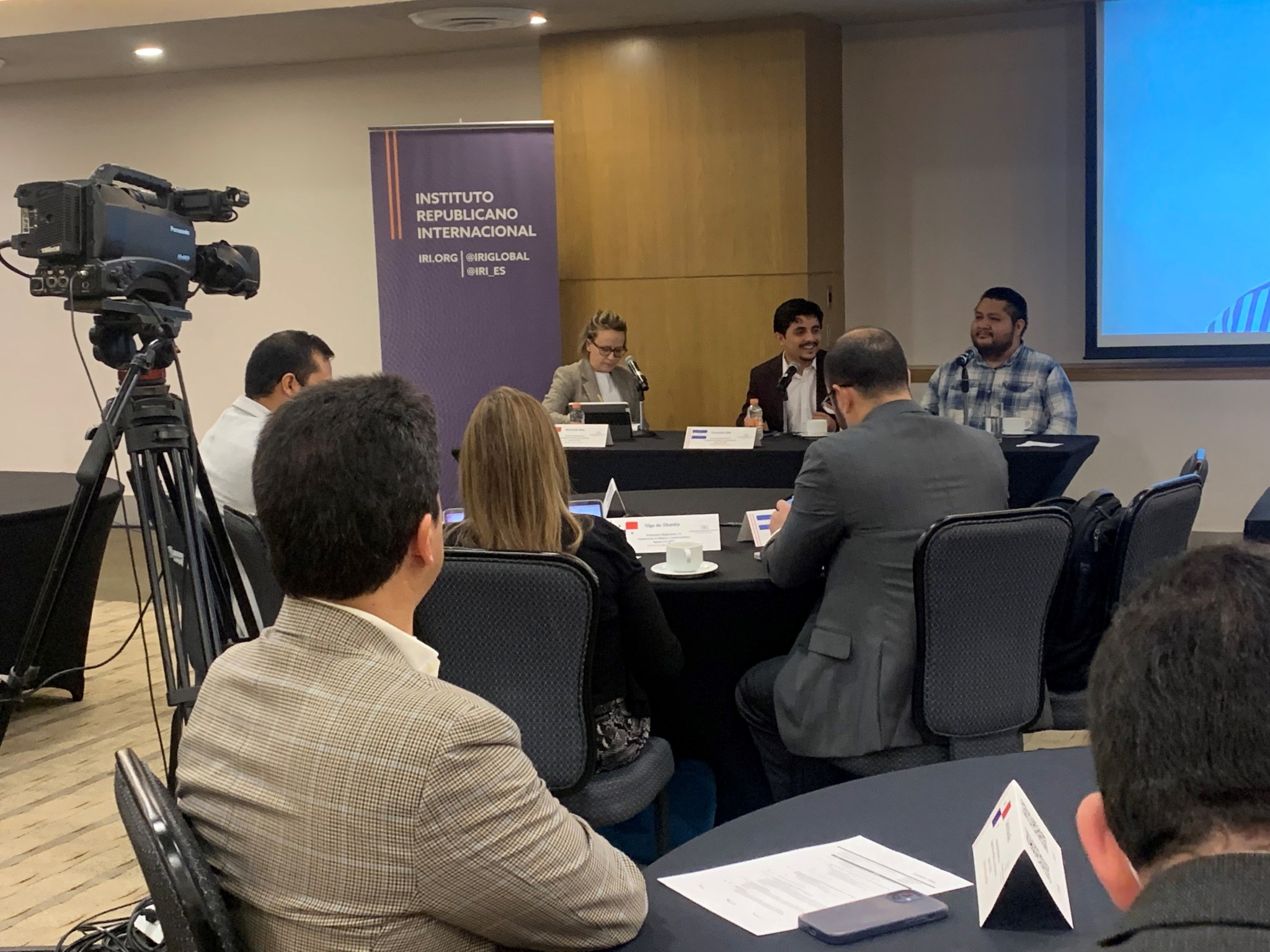It Takes a Network: Fighting Kleptocracy with Allies Around the Globe

Yeddelti Cupul Alonzo works to promote transparency around land deals in the state of Quintana Roo, Mexico. She’s particularly focused on big development projects and how they impact local communities. “These are deals with no transparency about budgeting, about how decisions to sell or develop land affect the environment. And who benefits from these deals? Why aren’t the contracts public? Who wins the bids and why?” she asks.
Cupul Alonzo is not alone in pushing for transparency around government projects, insight into political leaders’ finances, and independent investigations into corruption allegations. In order to get people like her, activists, journalists, civil society leaders, and anti-corruption lawyers in a room together, the International Republican Institute recently hosted two high-level anti-kleptocracy conferences, one in Mexico City and one in Kathmandu. The idea behind these gatherings is to get experts on kleptocracy together to exchange ideas, share best practices, and forge bonds. IRI’s two most recent conferences focused on Mexico and Central America and South Asia with the aim of expanding activists’ reach and making the connections that help them make a bigger impact at home. International connections and networks are especially important in anti-kleptocracy work because corrupt leaders are often able to stifle reporting and information-sharing at home.
“I have two roles: one as a journalist and another as an advocate-slash-activist,” explains Babita Basnet, who works in Nepal. “As a journalist, writing on kleptocracy is challenging– I sometimes get threats if I write news on kleptocrats. And as an activist against kleptocracy, I need financial support to conduct research, build networks, and mobilize people in campaigns.” Basnet says conferences like the one IRI hosted in Kathmandu are vital for raising money and awareness of her work. She says stories and examples from other countries help her better understand how kleptocracy works in Nepal and how anti-kleptocracy movements operate abroad.
The presentations and discussions at IRI’s anti-kleptocracy conferences offer participants practical information they can take home with them. One recent session focused on the safety challenges facing anti-kleptocracy reporters and activists, with tips on protecting sources, how to use secure digital communications platforms, and the perils facing free-lance investigative journalists. A hands-on session spilt attendees into groups to discuss building and maintaining national information-sharing networks in the face of active opposition and/or public indifference. And another looked at the ways in which corruption gets embedded in politics and how best to counter kleptocracy locally and nationally.
“Meetings like these are important,” says Lester Ramirez, the Director of Governance and Transparency at Transparency International Honduras in Tegucigalpa. “In Latin America, we need to focus more on transnational aspects of corruption. We need to learn more about how the transnational banking system works, security and exchange systems, and complex ‘first world’ markets, where many of our kleptocrats send their money.” Ramirez says he’s talking to colleagues at conferences around the region about ways to hold developed countries responsible for their role as repositories of stolen wealth.
Nadishani Parera is the Executive Director of Transparency International Sri Lanka. She agrees that the international nature of anti-kleptocracy work makes international conferences more valuable, but points to the regional impact such conferences can have. She says they give her the opportunity to meet other colleagues working on the issue in the region, provide a platform to learn from others’ experiences, and allow her to connect with other activists and leaders across the region.
Anti-kleptocracy leaders stress the importance of cross-border connections since their work is similar, though it often differs in detail. “It is international, of course,” says Ramirez. “Around the world, people are dying because of corruption. We need to protect activists and journalists. There’s a high risk to these jobs– you have to fight against powerful people and institutions, and without support you just become another statistic, you have no legal assistance, you can lose your job, you’re by yourself, you’re threatened.” Cupul Alonzo agrees, but points out that, at the end, it is all about the people at home. “Anti-corruption is about impact on the environment, on women, the impact of pollution on the economic and physical life of the people. This is all reflected in policies and decisions about land use and spending.”
Top